SEAT Leon SP Sportstourer vs VW Golf – Differences & prices compared
Compare performance, boot space, consumption and price in one view.
Find out now: which car is the better choice for you – SEAT Leon SP Sportstourer or VW Golf?
The SEAT Leon SP Sportstourer (Estate) comes with a Petrol, Petrol MHEV, Diesel or Plugin Hybrid engine and Manuel or Automatic transmission. In comparison, the VW Golf (Hatchback) features a Petrol MHEV, Petrol, Diesel or Plugin Hybrid engine with Automatic or Manuel transmission.
When it comes to boot capacity, the SEAT Leon SP Sportstourer offers 620 L, while the VW Golf provides 381 L – depending on how much space you need. If you’re looking for more power, decide whether the 272 HP of the SEAT Leon SP Sportstourer or the 333 HP of the VW Golf suits your needs better.
In terms of consumption, the values are 0.30 L per 100 km for the SEAT Leon SP Sportstourer, and 0.30 L for the VW Golf.
Price-wise, the SEAT Leon SP Sportstourer starts at 25800 £, while the VW Golf is available from 24300 £. Compare all the details and find out which model fits your lifestyle best!
SEAT Leon SP Sportstourer
The SEAT Leon SP Sportstourer exudes a sleek and dynamic design, merging practicality with style effortlessly. Inside, the spacious and versatile interior ensures a comfortable ride for both driver and passengers, offering ample space for luggage and family needs. With its advanced technology and efficient performance, the Leon SP Kombi stands out as a superb choice for those seeking a reliable and modern family estate.
details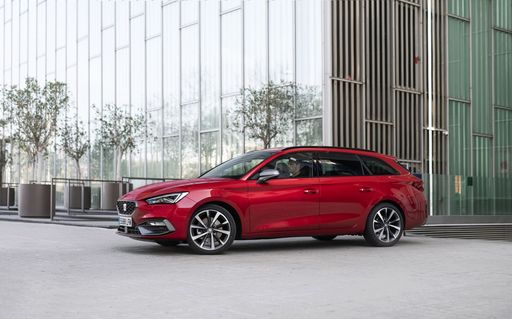 @ Seat
@ Seat
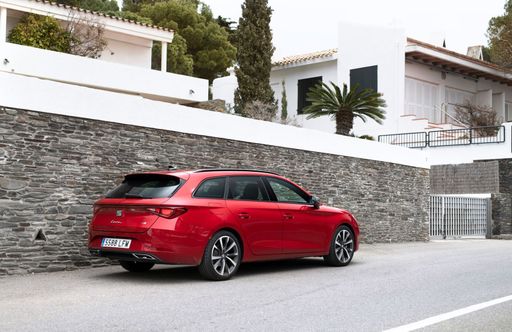 @ Seat
@ Seat
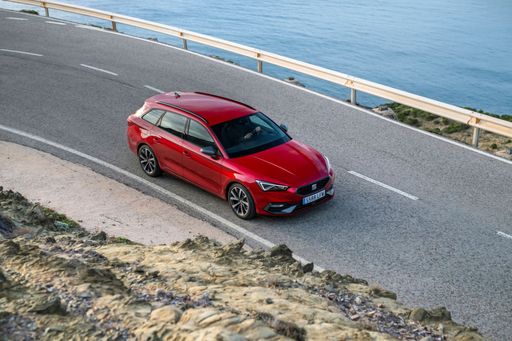 @ Seat
@ Seat
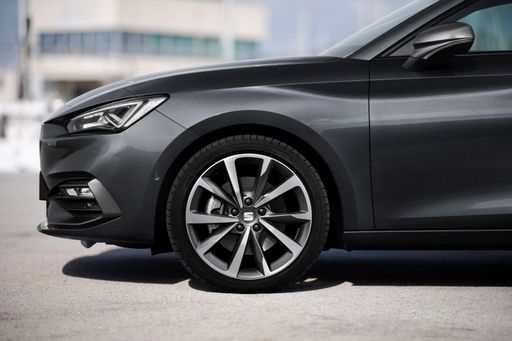 @ Seat
@ Seat
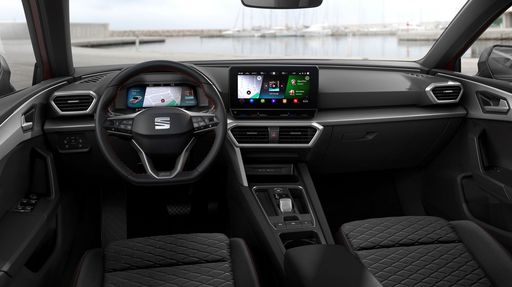 @ Seat
@ Seat
VW Golf
Der VW Golf überzeugt seit Jahrzehnten durch seine Vielseitigkeit und seine ausgewogene Mischung aus Komfort und Dynamik. Mit seinem zeitlosen Design und der hochwertigen Verarbeitung ist er ein treuer Begleiter im Alltag. Besonders beliebt ist der Golf wegen seiner innovativen Technologie und der großen Auswahl an Varianten, die für jeden Bedarf das passende Modell bietet.
details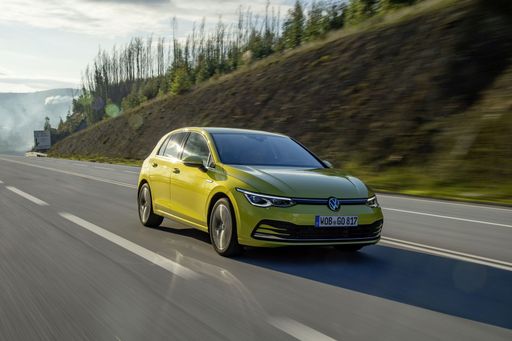 @ Volkswagen
@ Volkswagen
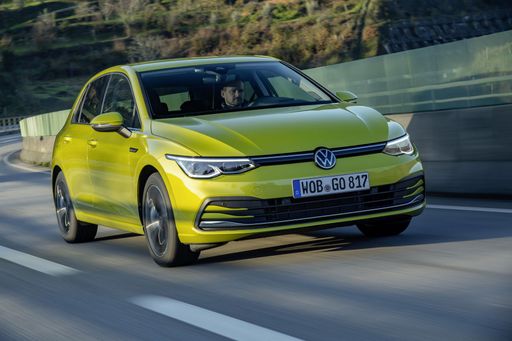 @ Volkswagen
@ Volkswagen
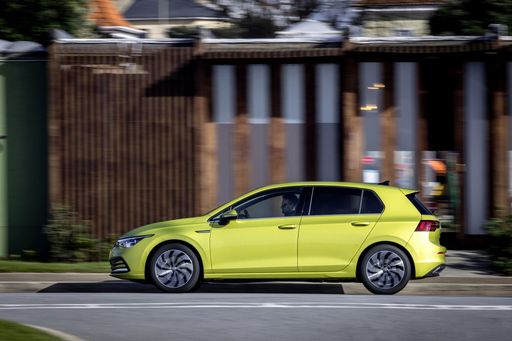 @ Volkswagen
@ Volkswagen
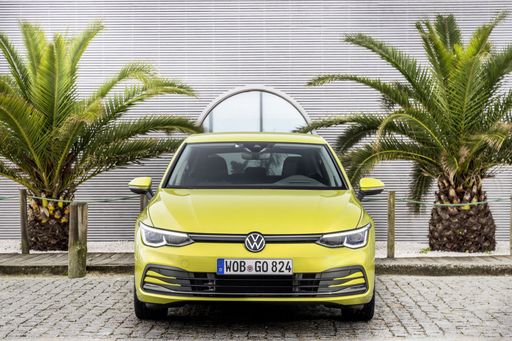 @ Volkswagen
@ Volkswagen
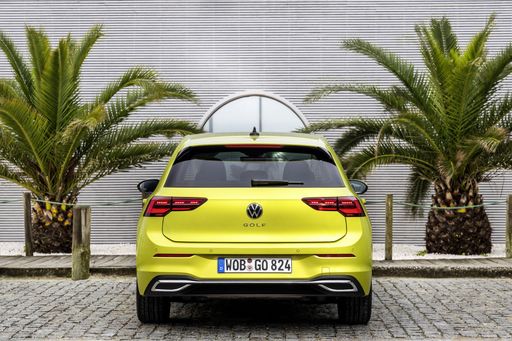 @ Volkswagen
@ Volkswagen
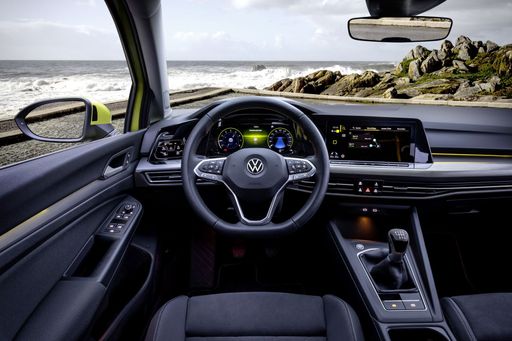 @ Volkswagen
@ Volkswagen
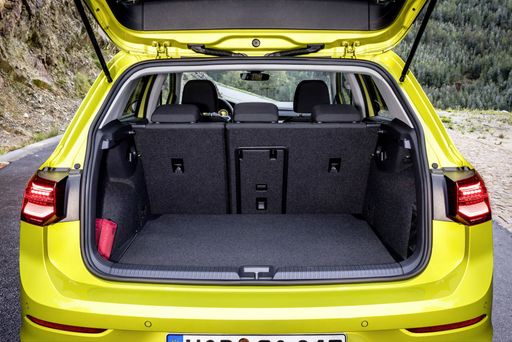 @ Volkswagen
@ Volkswagen

|

|
|
|
|
Costs and Consumption |
|
|---|---|
|
Price
25800 - 37900 £
|
Price
24300 - 51100 £
|
|
Consumption L/100km
0.3 - 5.7 L
|
Consumption L/100km
0.3 - 8.2 L
|
|
Consumption kWh/100km
-
|
Consumption kWh/100km
-
|
|
Electric Range
131 - 132 km
|
Electric Range
131 - 143 km
|
|
Battery Capacity
19.70 kWh
|
Battery Capacity
19.70 kWh
|
|
co2
7 - 130 g/km
|
co2
6 - 186 g/km
|
|
Fuel tank capacity
40 - 45 L
|
Fuel tank capacity
40 - 55 L
|
Dimensions and Body |
|
|---|---|
|
Body Type
Estate
|
Body Type
Hatchback
|
|
Seats
5
|
Seats
5
|
|
Doors
5
|
Doors
5
|
|
Curb weight
1384 - 1716 kg
|
Curb weight
1307 - 1668 kg
|
|
Trunk capacity
470 - 620 L
|
Trunk capacity
273 - 381 L
|
|
Length
4642 mm
|
Length
4282 - 4296 mm
|
|
Width
1799 mm
|
Width
1789 mm
|
|
Height
1437 - 1456 mm
|
Height
1454 - 1483 mm
|
|
Payload
414 - 569 kg
|
Payload
431 - 508 kg
|
Engine and Performance |
|
|---|---|
|
Engine Type
Petrol, Petrol MHEV, Diesel, Plugin Hybrid
|
Engine Type
Petrol MHEV, Petrol, Diesel, Plugin Hybrid
|
|
Transmission
Manuel, Automatic
|
Transmission
Automatic, Manuel
|
|
Transmission Detail
Manual Gearbox, Dual-Clutch Automatic
|
Transmission Detail
Dual-Clutch Automatic, Manual Gearbox
|
|
Drive Type
Front-Wheel Drive
|
Drive Type
Front-Wheel Drive, All-Wheel Drive
|
|
Power HP
110 - 272 HP
|
Power HP
116 - 333 HP
|
|
Acceleration 0-100km/h
7.9 - 10.8 s
|
Acceleration 0-100km/h
4.6 - 10.2 s
|
|
Max Speed
197 - 220 km/h
|
Max Speed
202 - 270 km/h
|
|
Torque
220 - 360 Nm
|
Torque
220 - 420 Nm
|
|
Number of Cylinders
3 - 4
|
Number of Cylinders
4
|
|
Power kW
85 - 200 kW
|
Power kW
85 - 245 kW
|
|
Engine capacity
1498 - 1968 cm3
|
Engine capacity
1498 - 1984 cm3
|
General |
|
|---|---|
|
Model Year
2024 - 2025
|
Model Year
2024 - 2025
|
|
CO2 Efficiency Class
D, B
|
CO2 Efficiency Class
D, C, B, F, G
|
|
Brand
SEAT
|
Brand
VW
|
SEAT Leon SP Sportstourer
The Versatility of the SEAT Leon Sportstourer
The SEAT Leon Sportstourer takes the well-loved Leon hatchback and extends its versatility with a spacious estate design. For families and adventurous individuals seeking both style and practicality, the Leon Kombi provides a compelling package. Let's explore the technical details and innovations that make this car a standout choice.
Powertrains That Cater to Every Need
Under the bonnet, the SEAT Leon Sportstourer offers a diverse range of engine options. Buyers can choose from efficient petrol engines, robust diesel options, mild hybrids, and even a plug-in hybrid variant. The power output ranges from 110 PS to an impressive 204 PS, ensuring there's a model for every driving style and need.
Efficiency Meets Performance
With a consumption rate as low as 1.1 L/100 km in the plug-in hybrid model and 5.8 L/100 km for conventional engines, the Leon Kombi scores high marks on efficiency. This is further supplemented by its CO2 emissions ranging from a mere 26 g/km to 130 g/km, aligning with modern sustainability demands without sacrificing performance.
Innovative Technology for the Modern Driver
Adorned with cutting-edge technology, the SEAT Leon Sportstourer makes driving a breeze. The Mild-Hybrid variants use a 48V electrical system, enhancing fuel efficiency and providing a smooth ride. The plug-in hybrid version boasts a 10.4 kWh battery, offering a purely electric range of 62 km—perfect for city commuting.
Attention to Comfort and Space
Designed as a family-friendly vehicle, the Leon Kombi does not compromise on comfort and space. It supports up to five passengers and offers a substantial boot capacity ranging from 470 to 620 litres, catering to all luggage needs, from daily errands to long family vacations. The interior, richly appointed with modern amenities, is a testament to SEAT's commitment to quality and driver satisfaction.
Safety Features That Instill Confidence
The SEAT Leon Sportstourer is well-equipped with advanced safety features. From adaptive cruise control to emergency assist systems, it ensures peace of mind for both driver and passengers. This focus on safety is a core part of what makes the Leon Kombi an attractive choice for families and frequent travellers.
Final Verdict
The SEAT Leon Sportstourer stands out as a top contender in the estate car segment. With a balanced blend of innovation, efficiency, and practicality, it assures comprehensive driving satisfaction. Its varied engine lineup, commitment to economy, and plethora of features make it a worthy investment for those seeking a versatile and reliable vehicle.
VW Golf
VW Golf: Ein Evergreen mit innovativer Technik
Seit Jahrzehnten gilt der Volkswagen Golf als der Inbegriff des zuverlässigen Kompaktwagens. Doch der neueste VW Golf zeigt sich nicht nur als bewährter Alltagsheld, sondern auch als Fortführer technologischer Innovationen. Ob Benzin, Diesel oder Hybrid – der Golf bietet für jede Präferenz die passende Antriebsform und bleibt dabei stets am Puls der Zeit.
Antriebsvarianten: Vielfalt für jeden Fahrertyp
Der VW Golf ist in einer beeindruckenden Bandbreite von Antriebsvarianten erhältlich, die von klassischen Benzinmotoren über effiziente Diesel-Aggregate bis hin zu modernen Hybrid-Antrieben reichen. Insbesondere die Mild-Hybrid und Plug-In-Hybrid Modelle stellen einen herausragenden Fortschritt in Sachen Kraftstoffeffizienz und CO2-Reduktion dar. Mit einem Verbrauch von nur 0,3 L/100 km bei den Plug-In-Hybrid Varianten und einer elektrischen Reichweite von bis zu 137 km setzt der Golf Maßstäbe in seiner Klasse.
Leistung und Effizienz
Das Leistungsspektrum des Golf erstreckt sich von effizienten 116 PS bis hin zu kraftvollen 333 PS im Golf R, der mit Allradantrieb und sportlicher Dynamik beeindruckt. Vielfältige Auswahlmöglichkeiten bei Getriebearten, von manuell bis zum modernen Doppelkupplungsgetriebe (DSG), bieten zusätzliche Flexibilität für unterschiedliche Fahrstile und Nutzungsszenarien.
Technologie und Innovation
Die neuesten Golf-Modelle sind mit fortschrittlicher Technologie ausgestattet, die Komfort und Sicherheit auf ein neues Niveau hebt. Das Interieur glänzt mit einem modernen Infotainmentsystem, umfassender Konnektivität und innovativen Fahrerassistenzsystemen. Das Head-up-Display, adaptive Fahrwerksregelung und die intelligente Verkehrszeichenerkennung sind nur einige der Features, die den Golf zu einem der technologisch führenden Fahrzeuge in seinem Segment machen.
Design und Funktionalität
Der VW Golf kombiniert bewährtes Design mit funktionalen Verbesserungen. Das sportliche, aber dennoch elegante Schrägheck bietet großzügigen Platz, wobei der Kofferraum zwischen 273 und 381 Litern zu bieten hat. Die ästhetische Linienführung bei zugleich optimaler Raumausnutzung verleihen dem VW Golf seine typisch zeitlose Eleganz.
Umweltbewusstsein und Nachhaltigkeit
In einer Zeit, in der der bewusste Umgang mit Ressourcen immer wichtiger wird, überzeugt der Golf mit einer hohen Effizienz und geringen Emissionen. Die verfügbaren CO2-Effizienzklassen von B bis G zeigen, dass der Golf auch in puncto Umweltverträglichkeit eine gute Wahl darstellt. Dank der Auswahl an ressourcenschonenden Antrieben trägt der Golf zur Reduzierung des ökologischen Fußabdrucks bei.
Fazit: Der VW Golf bleibt ein Bestseller
Mit stetiger Weiterentwicklung in Technik und Design bleibt der VW Golf ein Dauerbrenner auf dem Automobilmarkt. Seine Vielseitigkeit in Antriebsarten, gepaart mit modernem Komfort und zukunftsweisender Technologie, macht ihn zu einem Fahrzeug, das nicht nur treue Fans begeistert, sondern auch neue Kunden anspricht. Der Golf bleibt ein Symbol für Zuverlässigkeit und Innovation in einem sich stetig wandelnden Markt.
Which drive types are available for the SEAT Leon SP Sportstourer?
Available as Front-Wheel Drive.
The prices and data displayed are estimates based on German list prices and may vary by country. This information is not legally binding.
